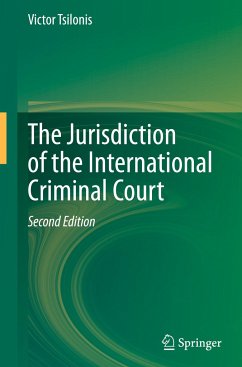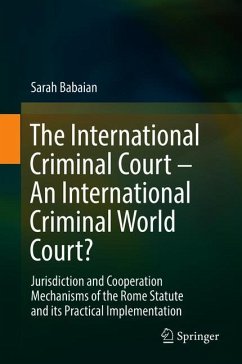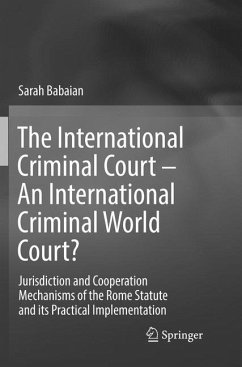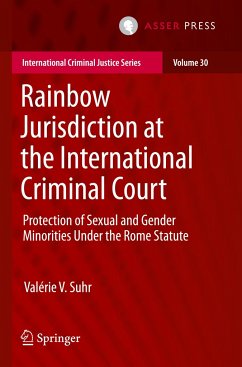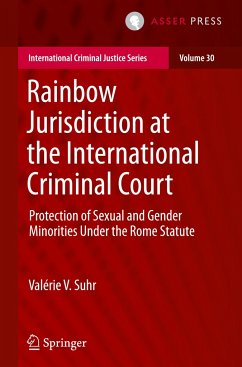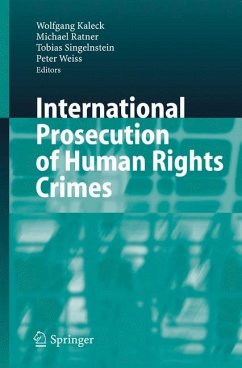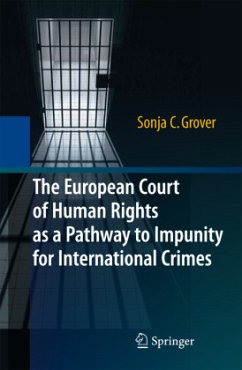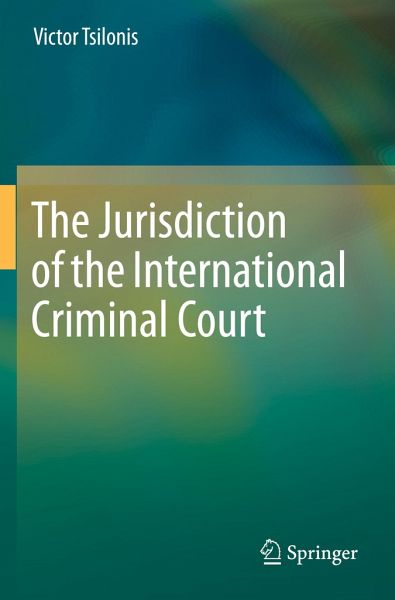
The Jurisdiction of the International Criminal Court
Versandkostenfrei!
Versandfertig in 6-10 Tagen
106,99 €
inkl. MwSt.
Weitere Ausgaben:

PAYBACK Punkte
53 °P sammeln!
The book provides a holistic examination of the jurisdiction of the International Criminal Court (ICC). The main focus is placed on the three pillars which form the ICC's foundation pursuant to the Rome Statute:the preconditions to the exercise of its jurisdiction (Article 12 Rome Statute)the substantive competence, i.e. the core crimes (Article 5-8bis Rome Statute, i.e. genocide, crimes against humanity, war crimes, crime of aggression) the principle of complementarity (Article 17§1 (a) Rome Statute)The latter governs the ICC's 'ultimate jurisdiction', since it is not merely sufficient for a...
The book provides a holistic examination of the jurisdiction of the International Criminal Court (ICC). The main focus is placed on the three pillars which form the ICC's foundation pursuant to the Rome Statute:
the preconditions to the exercise of its jurisdiction (Article 12 Rome Statute)the substantive competence, i.e. the core crimes (Article 5-8bis Rome Statute, i.e. genocide, crimes against humanity, war crimes, crime of aggression) the principle of complementarity (Article 17§1 (a) Rome Statute)
The latter governs the ICC's 'ultimate jurisdiction', since it is not merely sufficient for a crime to be within the Court's jurisdiction (according to the substantive, geographical, personal and temporal jurisdictional criteria), but the State Party must also be unwilling or unable genuinely to carry out the investigation or prosecution.
Finally yet importantly, the main 'negative preconditions' for the Court's jurisdiction, i.e. immunities (Article 27 Rome Statute) and exceptions via Security Council referrals are thoroughly examined.The book is an excellent resource for scholars as well as practitioners and notably contributes to the existing literature.
the preconditions to the exercise of its jurisdiction (Article 12 Rome Statute)the substantive competence, i.e. the core crimes (Article 5-8bis Rome Statute, i.e. genocide, crimes against humanity, war crimes, crime of aggression) the principle of complementarity (Article 17§1 (a) Rome Statute)
The latter governs the ICC's 'ultimate jurisdiction', since it is not merely sufficient for a crime to be within the Court's jurisdiction (according to the substantive, geographical, personal and temporal jurisdictional criteria), but the State Party must also be unwilling or unable genuinely to carry out the investigation or prosecution.
Finally yet importantly, the main 'negative preconditions' for the Court's jurisdiction, i.e. immunities (Article 27 Rome Statute) and exceptions via Security Council referrals are thoroughly examined.The book is an excellent resource for scholars as well as practitioners and notably contributes to the existing literature.




